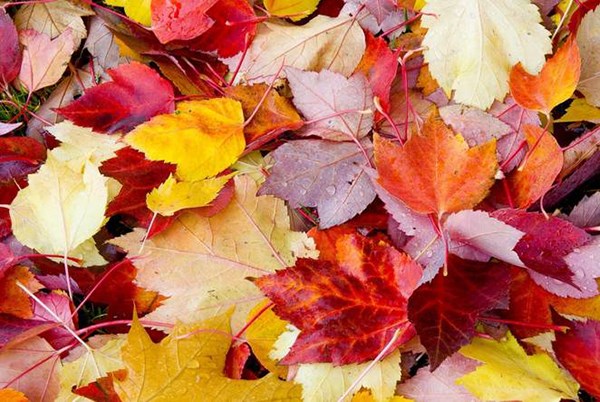����love this time of the year when the leaves start to change and gently fall to the ground. It’s like summer’s last hurrah before we hunker down into the cold and dark of winter.
Autumn has arrived and with it one of the least favourite seasonal chores, raking up leaves. Most people who have yards rake leaves into bags to be carted off to the municipal compost heap to get turned into mulch somewhere else.
I’ll be honest with you. No one has ever accused me of being too tidy, but science is telling us that leaving some leaves around is actually good for the environment, our soil and supporting habitats for beneficial bugs and animals.
The National Wildlife Federation credits leaving autumn leaves on the ground to helping create mini ecosystems for beneficial insects. Did you know that butterfly pupae hide in the leaves in large quantities and when we throw them out, we are depriving birds of an important food source in spring, while also adding to the declining butterfly population?
Sometimes I feel like a broken record when I talk to people about “building” their soil and enriching it on a yearly basis with organic matter. Leaving leaves on your lawn and ornamental beds allows decomposing matter to become natural mulch, which feeds the soil and improves its overall structure and health.
It is not a cut and dry solution. You don’t have to let every leaf lay where it falls, particularly on driveways and walkways where they can become slippery and dangerous over the season.
I know some people will not consider it beautiful or practical to let leaves that take a long time to break down lay around for the entire season. Case in point – the oak leaf. If you want a tidier look with better organic consequences try making your own leaf mould instead of disposing of your leaves.
A leaf mould is easy to create and costs you nothing compared to expensive fertilizers and garden amenders. Just pile the leaves in a corner of your yard and let them decompose over time. Unlike composting, nothing else needs to be added. In the spring, work it into your soil for beneficial micro/macro nutrients and carbon rich ingredients, which help to improve soil structure.
You can also make leaf mulch to cover your gardens over the winter. Ideally if you had a chipper/shredder you could run the leaves through that and pile on gardens and veggie beds.
Failing a shredder, you can run your lawn mower over a pile of leaves several times. This helps them break down quicker.
Once we have had a few frosts, it’s a great time to put down your leaf mulch for the winter. Apply it about two-inches thick. Mulch helps keep down weeds, protects soil from extremes, helps stop soil erosion and adds nutrients once it decomposes.
So this fall, when you look outside at the carpet of falling leaves, consider leaving the rake in the shed and let your leaves be a natural benefit to your garden.




